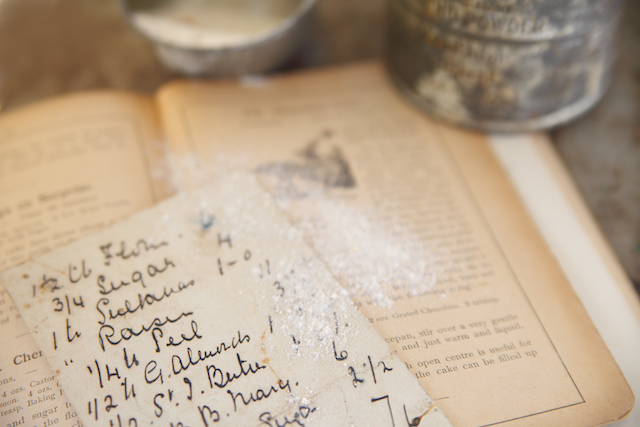Here’s How I Eat Vegan on Only $30 a Week

The expensive green juices and jackfruit tacos on Instagram make it easy to assume veganism is for those with plenty of money to burn. Many vegans spend $50 or more a week on groceries just for themselves, according to this Reddit post.
But I’ve been able to eat a varied and healthy vegan diet for only $30 a week, which is down from the $45 I spent when I first went vegan more than a year ago.
With these strategies, a budget doesn’t have to be a barrier to going vegan. Here’s how to reduce your dependency on animal-based products without spending a ton of cash on groceries.
Stock Your Pantry With Bulk Staples

Dried bulk foods are incredibly cheap and form a hearty and healthy base for any meal. Dried beans are up to 68% cheaper per serving on average than canned, and bulk grains like oats and quinoa are versatile and easy to use.
Cross-shop your local stores (as well as online sellers) to find where your favorite bulk foods are cheapest; right now, I shop mostly at HEB.
Remember, though, buying in bulk is only cheaper if you actually use everything you buy. Don’t buy an ingredient in bulk the first time you try cooking with it; if it turns out you don’t like couscous, the five-pound bag you purchased is a drain on your budget.
Stop Paying for Almond-Flavored Water
Plant-based milks are delicious and nutritious, but many of them are pricy for a product that is mostly water.
So, how do you avoid eating your cereal dry? I make my own plant-based milks in my blender.
Quinoa milk is my favorite due to its high protein content and how easy it is to make; the only equipment I need is my blender, which only cost me $15.
Rice milk is just as easy and even cheaper. More adventurous folks can try their hands at almond or cashew milk.
If you can find it in the grocery store, you can find a way to make it yourself.
Load Up on Frozen and Canned Veggies

Produce is expensive!
Luckily, you can still meet your nutritional needs by hitting the freezer aisle or canned-goods section and loading up on store-brand fruits and vegetables. Use these affordable options to supplement the in-season fresh produce you can fit into your budget.
Canned fruits and vegetables are far cheaper than fresh with little nutrition loss, according to this study from Michigan State University.
Not a fan of the canned versions of certain fruits and vegetables? Some of their frozen counterparts are also cheaper than fresh produce.
Spice It Up

If your home cooking is bland and boring, you’ll be tempted to spend too much money at restaurants and on pre-made grocery store meals. Invest in some spices so you can make home-cooked dishes that satisfy your hunger and your palate.
My go-to spices are cumin, turmeric, chili powder, garlic powder, onion powder and dried ginger. Yours will depend on your tastes; Google recipes for your favorite cuisines to get a feel for what you should stock in your spice cabinet.
Learn Easy Recipes

Just as lack of flavor can tempt you to eat out, you may also feel the lure of restaurants if you don’t know how to make quick and easy meals.
Breakfast can be as easy as filling a jar with oats, plant-based milk, flaxseed and fruit, then letting it sit in your fridge overnight.
Packing a lunch is no problem if you schedule a meal-prep day once a week to whip up a bunch of burritos, sandwiches and salads.
Make Your Own Shakes and Bars

Store-bought protein bars and shakes are often expensive and full of sweeteners. By making them at home, you can save money and tweak their composition to meet your needs.
Are you a fueled-by-carbs cardio monster? Try oat-based energy balls.
Working on increasing the protein-to-carb ratio in your diet? Buy an unsweetened, plant-based protein powder and make your own shakes.
Resist the Pull of the Health-Food Store

Do you need to shop at a health-food store to be vegan? No! You can actually save money and eat better by not going to a store filled with fancy, processed vegan foods.
When I shop at HEB, I tend to buy mostly legumes, fruits, vegetables and whole grains. If I go to a store like Whole Foods, I end up breaking the bank on a Daiya cheesecake — a delicious, occasional splurge, but not good for my wallet or my health if I make it a weekly habit.
Don’t Forget Your Vitamins

This might not seem like a personal-finance tip, but taking care of your health is the most important investment you can make. I take a multivitamin that contains B12, zinc and iron. In addition, I incorporate foods like ground flaxseed in my diet to get omega-3 fatty acids.
Make sure you’re taking care of yourself in addition to the Earth!
Sample Menu For a Day of Easy Vegan Cooking
Overnight oats:
1 cup bulk oats (21 cents)
½ cup homemade quinoa milk (28 cents)
Seasonal berries or fruit (50 cents)
Chana masala burrito:
Tortilla (27 cents)
1 cup chana masala, created using this recipe but substituting dried ginger and garlic for fresh ($1.72)
Pasta:
Spaghetti (56 cents)
Tomato sauce (24 cents)
Frozen or seasonal vegetable (50 cents)
Total for the day: $4.28
Your Turn: Do you eat vegan? How do you stick to your grocery budget?
Maura Barry-Garland was born and raised in Alaska, attended Columbia University in New York City, and is currently serving as an AmeriCorps member in Austin, Texas.


















